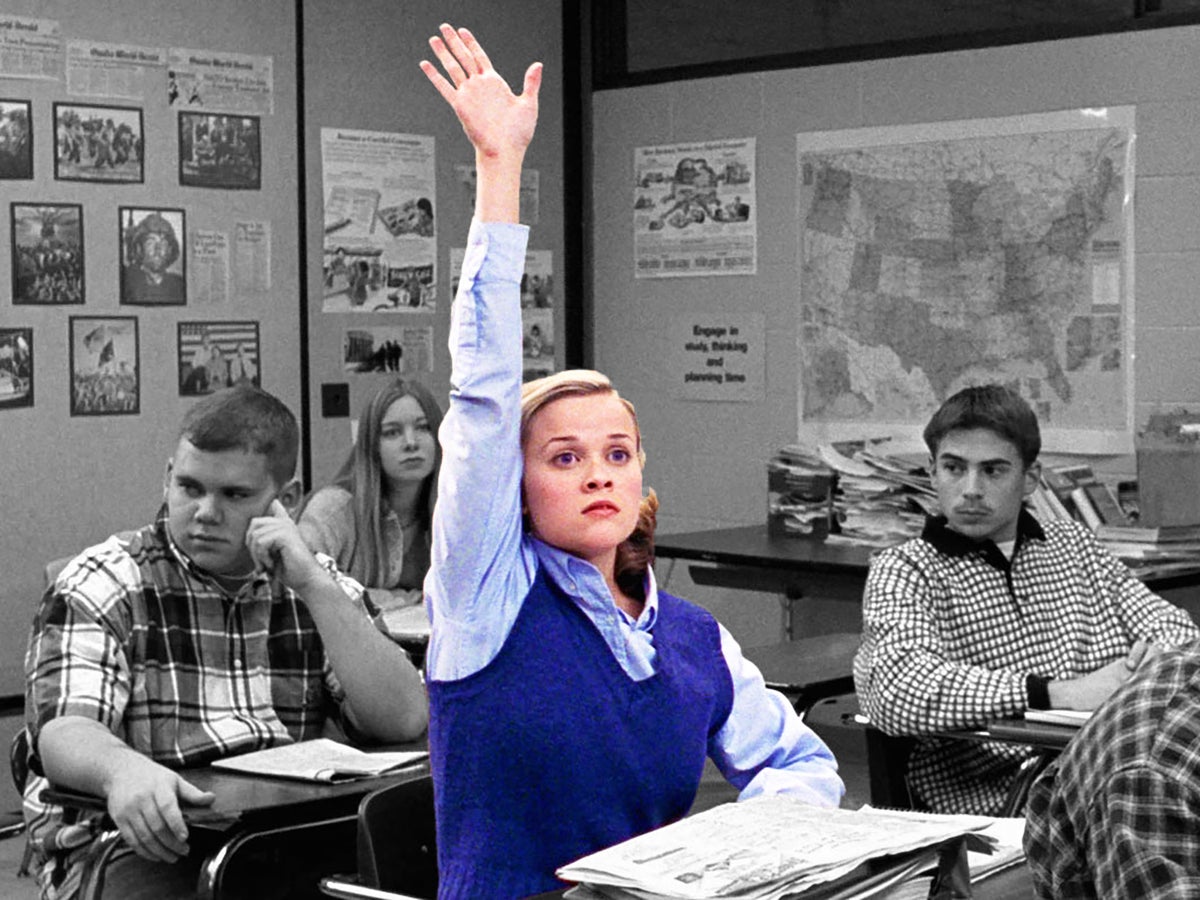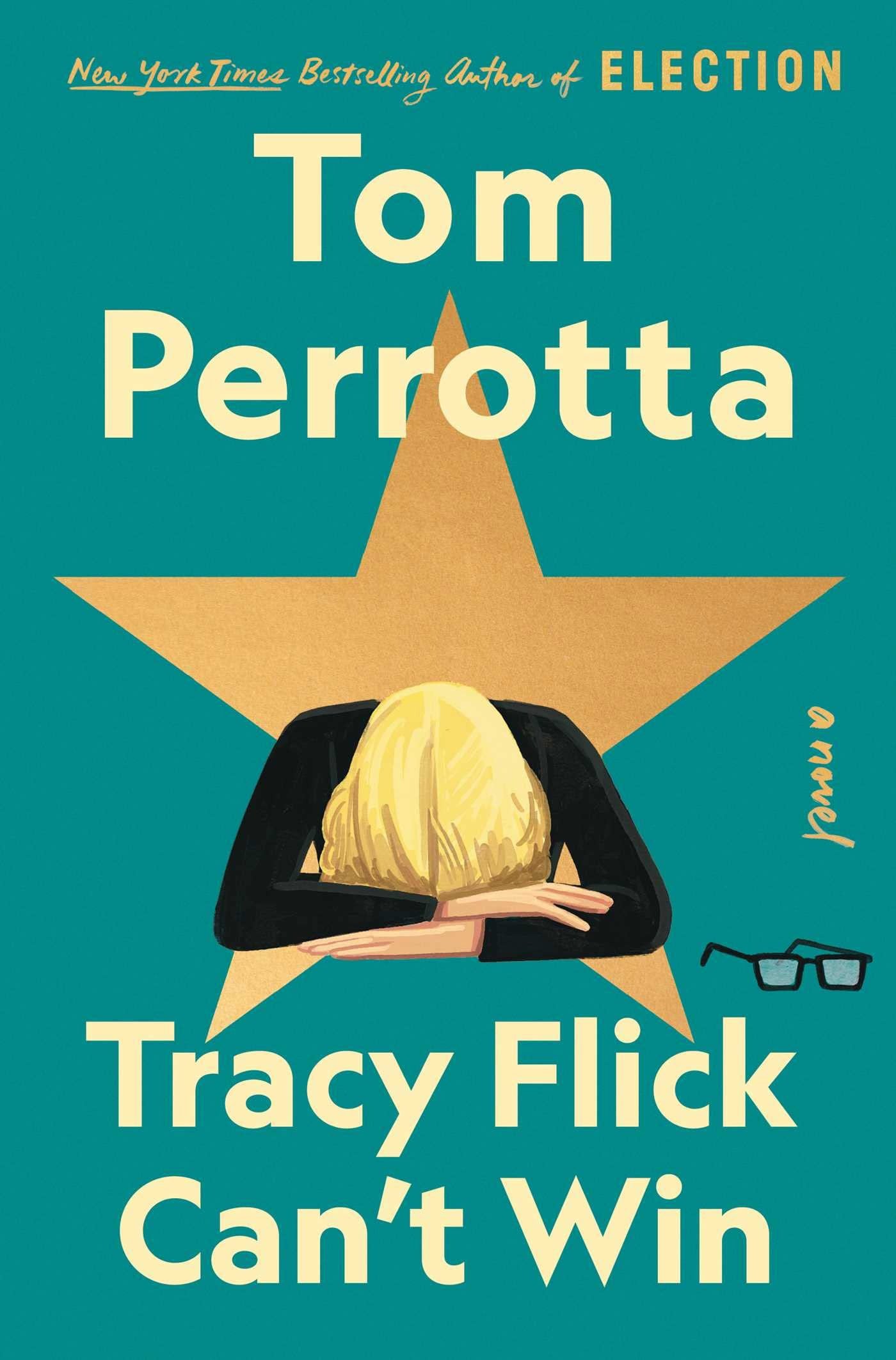
Is there any name in contemporary fiction – or movies or even real life, for that matter – as evocative as Tracy Flick? It’s Dickens-calibre efficient at conjuring the zizz of a pest. Even if you’ve not read Tom Perrotta’s hilarious 1998 novel Election, or seen Alexander Payne’s rompy adaptation starring Reese Witherspoon, just the sound “Tracy Flick” probably annoys you. It hits the ear like an insult, which it absolutely is.
Because Tracy Flick is the apotheosis of an especially sneered at subcategory of uppity female striver. Her blatant ambition doesn’t just grate on people. She gets so deep under their skin that they struggle to explain their ridiculous revulsion. How dare she care so much and try so hard? And isn’t her toothy grin sofake?
Tracy Flick is such a tremendous example of the archetype that she’s also become its shorthand. Rachel Berry from Glee? Kind of a Tracy Flick. Taylor Swift can be awfully Tracy Flick sometimes. US Senator and two-time presidential hopeful Hillary Clinton? Huge Tracy Flick vibes.
In this summer’s gloomy, introspective sequel novel to Election, Tracy Flick Can’t Win, Tom Perrotta resurrects the character once more to prove that being Tracy Flick is actually a terminal diagnosis. Except, at 40, she’s no longer young enough to be the precocious villainess. Now, she’s a cautionary tale for what can happen to all that turbocharged Type A energy when a woman’s life doesn’t work out. To finally make Tracy Flick sympathetic, first you have to make her fail.
Despite nearly 25 years between their publication, both books are preoccupied with Tracy’s likability – what Perrotta, who also wrote The Leftovers, termed “the Character Issue” in his debut novel. In Election, a student council race is rigged by a high-school history teacher (Mr M, played in the film by Matthew Broderick) who just can’t bear to see a perky little snot like Tracy on top. So he enlists a popular layabout, nice-guy jock – another high school archetype in need of scrutinising – and then falsifies the results when Tracy manages to eke out the votes anyway. Mr M is eventually fired, and monstrous Tracy leaves for college to pursue her dream of becoming the first female president of the United States. It feels more like a threat to the republic than a just and happy ending.
But Tracy doesn’t come close to the White House, we learn early in the sequel. She’s a single mom and the assistant principal of a small, suburban New Jersey high school not so different from the one where she was epically mistreated. The plot of the new book isn’t much of a departure either. Instead of vying for class president, Tracy wants a promotion to principal. The voters are her peers – the parents, teachers, and administrators who make up the school board – and still she’s a loner.
It’s the times that have changed, so much so that it’s impossible to reread Election and not be shocked that Tracy’s “affair” – her word – with her married, male English teacher, Dave, isn’t the novel’s centre. Even in Tracy Flick Can’t Win, Tracy won’t condemn her teacher because she wasn’t like other high school girls. She was a Tracy Flick. It’s what made her special: “Whatever it is that a person needs to reach a goal like that, I had it in me, I knew I did,” she says of her dream of becoming president. But it also left her alienated and vulnerable. It’s why guys like Mr M could blame Tracy for his buddy Dave getting fired and still be confused for the story’s protagonist.

In fact, the whole lingering impression Tracy Flick left on pop culture comes from Mr M’s warped assessment. He saw a teenage Machiavelli so myopic in her pursuit of power that there’s nothing she wouldn’t say or do to win. But Tracy’s devious tactics amount to baking 200 cupcakes to pass out to her classmates and tearing down a few of the jock’s campaign posters. “That girl was bad news,” Mr M says in Election. “110 pounds of the rawest, nakedest ambition I’d ever come in contact with.” One has to wonder what was more objectionable to him: the ambition or the shape of its container? He goes out of his way to prop up a male candidate who can’t muster a fraction of her drive.
But so long as Tracy’s stock was rising and Mr M’s was falling – he’s a reluctant car salesman at the end of the book; a museum tour guide at the end of Payne’s film – his savage misjudgement didn’t feel so menacing. There’s an edge of promise to high school’s high-achieving social outcasts. Eventually, the nerds become powerful, and the popular kids wash the nerds’ limousines. You could poke fun at Tracy Flick in Election, because if enough time passed, you felt confident she’d get the last laugh.

Decades later, though, Tracy’s still figuring out how to process what happened to her that year. When she repurposes it as a funny story, no one laughs. “I think it just made people wonder if there was something wrong with me, and I couldn’t help wondering that myself, because why else would a teacher hate me so much that he’d ruin his life just to stop me from getting something I desperately wanted and totally deserved?”
When I think about what made Tracy Flick so detested in Election and, frankly, what makes the Tracy Flicks of the world so disliked, I’m pretty sure it boils down to that last word – “deserved”. Yes, she wanted to win, but what’s radical is that she believed she deserved it, even as the adults in the room insisted otherwise. She has the same instinct again in Tracy Flick Can’t Win, when another candidate for the promotion starts making dubious gains.
The unpalatable thing about Tracy as a kid is that she had more self-belief than most adults. A sad thing about watching Tracy as an adult is to realise how special it was, especially for a girl, that she took herself so seriously. It’s wretched to see that kind of hope drain from a person, real or invented. Tracy Flick was never the blonde-bobbed pariah she became in pop culture’s hazy memory, but that didn’t save her from feeling like one.
‘Tracy Flick Can’t Win’ by Tom Perrotta is published on 7 June







